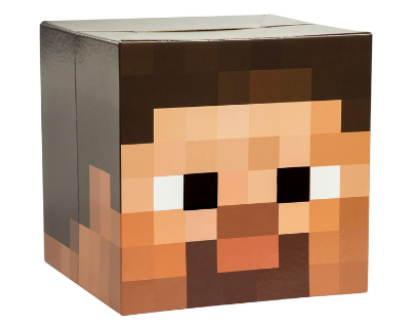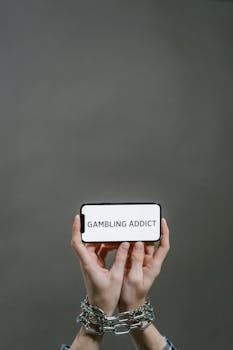Picture waiting for your coffee while deftly dodging sniper fire, all on a screen barely bigger than your palm. Mobile shooters blend downtime relief with high-octane excitement. They have rewritten what being “game ready” means for millions.
Mobile shooter games now shape digital pop culture and draw international competition. The conversation has moved far beyond a quick distraction to fill dull moments between meetings. This genre impacts how players socialize, compete, and even earn a living.
This guide explores mobile shooters’ rapid transformation from quick play to major esports scenes. If you’re curious about mechanics, culture, growth, or pro opportunities, read on—each section offers practical insights with clear actions and real-world relevance.
Milestones That Changed Mobile Shooting Games Forever
Pivotal releases shaped the direction of mobile shooters, triggering shifts not just in controls but in entire communities’ expectations. Early hits proved that playing well wasn’t only for console or PC veterans.
Just as smartphones phased out flip phones, polished tools and competitive frameworks reset how mobile shooters were judged and enjoyed. A mix of accessible play and ever-complex tactics fueled a movement no one expected at first.
Touch Controls Redefined Player Skill
“Rotate your thumbs faster than your heartbeat,” a friend once joked, practicing swipe-to-aim drills. Mastering these controls let players respond faster than older button-based games. Quick reflex calibration became an explicit badge of skill.
Developers iterated on control schemes. Options like gyroscope aiming or customizable HUDs gave users more direct, fluid connections with gameplay. The tactile feedback changed from a point-and-tap routine to an immersive adaptation that rewarded muscle memory.
Competitive players mapped their controls to match personal comfort, shaving crucial milliseconds off in-game reaction times. Anyone could tweak and share layouts, leading to a new subculture of guides and walkthroughs. Copy their layouts to immediately shift your comfort level.
Multiplayer Innovations Opened Up Real Competition
Multiplayer match-ups on handheld devices became possible as mobile networks improved. Instead of static AI battles, real-time human opponents fueled deeper rivalry and creativity. Playing “just one more round” started to mean challenging real friends or rivals online.
Inventive modes like battle royale and ranked arenas offered something that matched console counterparts. These modes expanded strategy—social cues, team coordination, and live reactions became decisive factors. Try a 2v2 quick match to see how team synergy tilts odds.
Friend lists, voice chat, and team challenges entered the mainstream. Banter and planning sound less staged and more like pickup basketball, translating fast-paced energy into a virtual playground. Use voice chat to coordinate landing spots and tactical maneuvers for immediate results.
| Milestone | Impact | New Expectation | What to Do Next |
|---|---|---|---|
| Customizable Controls | Greater personal comfort | User-tailored interface | Adjust button size for your thumb range |
| Multiplayer Rooms | Real-time rivalry | Social matches are norm | Practice with real friends, not just bots |
| Crossplay Lobbies | Console & mobile meet | Fairer matchmaking | Join mixed device lobbies for fresh tactics |
| Streaming Integration | Personal branding | Sharing moments live | Set up basic stream overlays for quick clips |
| Accessible Tournaments | Pro pathways | Road to esports | Sign up for a weekly open bracket |
Leveling Up: Skills and Habits That Create Standout Mobile Shooters
Top mobile shooter players adopt habits beyond tapping quickly or aiming precisely. Consistent self-review and adaptation play equal parts in sustained improvement.
Detailing day-to-day rituals helps transform casual users into strong competitors. Patterns, not just raw talent, drive ongoing success in rankings and tournaments.
Habit Stacking Improves Reaction Time
Consistent warm-ups—like running a 60-second aim drill before matches—help players sharpen focus without overthinking mechanics. Using muscle memory, reactions blend into instinctive double taps or rapid slides.
Try this: set up a three-minute daily routine, combining aim, reload, and movement exercises. By Tuesday, most notice their reflexes catch up. By Friday, you’ll catch yourself predicting opponents’ moves almost subconsciously.
- Start each session with an aim trainer map: builds precision, eases in coordination
- Review one replay after every match: identify missed shots, spot decision patterns
- Alternate game modes: exposes you to various tactics, keeps play fresh
- Switch thumb positions: tests fine-motor skills, avoids hand fatigue
- Log performance dips: helps track screen time versus accuracy lapses
Habits stack for constant micro-improvements rather than chasing a single breakthrough session. Adopting a warm-up and self-review ritual will knock seconds off your next clutch play sequence.
Community Learning Rewards Active Participation
Mobile shooter forums thrive when players swap tips, discuss meta updates, or debate the latest patch notes. Contributing makes technical jargon feel less alien and game mechanics less mysterious.
One player narrated their growth: “I joined weekly Discord reviews and let teammates critique my landing strategy. After three sessions, I died less right after dropping.” Honest, actionable feedback beats solo grinding.
- Ask for specific feedback in chat: targets improvements, uncovers blind spots
- Share short replays as clips: crowdsources ideas, speeds up learning
- Host or join custom lobbies: practices niche tactics, increases comfort with strategies
- Engage in event voting: shapes map rotations, influences developer decisions
- Mentor new players on basics: reinforces your own fundamentals, builds rapport
Active learning loops create smarter players. Participate in one focused discussion tonight and immediately pick up a fresh strategy to apply on your next match.
Tournaments Are Changing the Stakes for Mobile Shooter Players
Regular competitions mark a clear path from hobby to prize-driven gameplay. Top mobile shooter events feature concrete rewards—everything from vouchers to global recognition.
Teams plan months in advance, refining coordination. These events thrive on predictable routines and structured practice sessions that mirror traditional team sports in their discipline and stakes.
Climbing the Ladder: From Public Lobbies to Open Heats
Public matches let players hone clutch mechanics, while open heats offer scheduled, bracket-based competition. The jump from casual to competitive, in dialogue a player might say, “This Friday at 8, meet in Lobby 17. Let’s qualify for Sunday’s bracket.”
Succeeding involves time blocking—devoting evenings to scrimmages or practicing callouts in smaller groups. Sharing screenshots of bracket progress, strategies, or loss breakdown helps solidify experience and morale.
By moving through local and online events, players reflect after each round, update maps in memory, and schedule set review sessions. The actionable step: upload match highlights for external feedback to speed learning.
Communication Wins, Even Over Raw Skill
Victory isn’t just about aim. A group might script, “I’m flanking left—ping enemies when you spot them.” Short, direct commands outdo silence or rambled monologues every time.
Practicing these call-and-response cues lets less experienced teammates contribute, too. One team swapped from strict voice protocols to emoji-based pings; coordination shot up within a week.
Try switching between voice and text for key moments. Reserve full voice chat for complex situations, but rely on one-word pings for quick coordination. Consistency here wins more crucial rounds than flashy plays do.
Contrast: Mobile Shooting vs. Traditional Console Play
Playing mobile shooters versus consoles means more than choosing thumb versus trigger. Each platform demands unique adjustments, and these differences show up in real-time game decisions.
During a squad meetup, one member said, “On console, I play right-handed, but on my phone, my stronger thumb takes aim duty.” Even grip strategy changes across platforms, so what feels natural on one can trip you up on another.
| Feature | Mobile Experience | Console Experience |
|---|---|---|
| Control Layout | Touch interface, customizable | Standard gamepad, static map |
| Matchmaking | Quick drops, on-the-go | Longer, session-based play |
| Communication | Text/emoji/chat built-in | Headset-based, often voice |
Table differences hint at actionable change: Try tap target sizing for mobile and compare with fixed stick sensitivity on console. Each tweak rewards immediate adaptation, smoothing your cross-platform skills.
Community, Identity, and Everyday Rewards
Mobile shooter communities echo hometown sports teams—shared slang, inside jokes, and loyalty to favorite players build bonds that last past any single match.
Compare the pride in showing off in-game badges with wearing a varsity jacket. Screenshots, digital trophies, and “clan” group chats all serve as modern proof of commitment and progress.
Weekly in-game events mix nostalgia and novelty, encouraging routine check-ins. All-star moments get replayed, and even casual players chase rare skins or badges, reinforcing steady engagement with fresh incentives.
Events like time-limited tournaments replicate the urgency of a playoff series. Here’s a scenario: “Tonight at 10, double XP for five wins!” The chase feels immediate and tangible—players schedule sessions just like Monday night softball.
Community-driven discussions, tournaments, and content-sharing networks reinforce each member’s value. Jump into a group challenge this week; you’ll gain resources and advice just by participating.
Replayable Skills, Sharpening Routines, and Staying Fresh
- Save highlight clips after every win for review and technique analysis.
- Practice ambidextrous control—swap hands to spot weak points.
- Set custom aim zones on your screen for muscle memory drills.
- Host two-person scrim sessions to revise communication scripts.
- Track your stats using third-party or built-in performance dashboards.
- Alter sensitivity once a week to push adaptation.
- Review patch notes with squadmates and adjust your strategy together.
Each action on this list builds foundational skill and keeps routine from feeling stale. Use record-and-review methods to refine play. Swapping dominant hands tests and improves flexibility, while squad reviews boost both social and technical aspects instantly.
Experimentation with control schemes or stat tracking keeps mastery from feeling repetitive. Try adjusting one major setting, then measure win rate changes over a week. This micro-challenge format prevents burnout while encouraging steady progress.
Looking Forward: What’s Next For Mobile Shooters?
The ongoing evolution of mobile shooter games continues to blur the line between leisure, competition, and digital socialization. Each advancement transforms how players collaborate and challenge themselves in new arenas.
Game designers are leaning into real-time analytics, spectator modes, and creative social features. These innovations offer builders and competitors even more ways to express skill outside standard matches. Try experimenting with a replay tool—it might reveal strategies you missed live.
The next wave of games will prioritize player-driven content and streamlined crossplay. Expect custom game modes, easy device swapping, and more tools to showcase unique victories. Integrate new app features into your regular sessions as soon as they’re available.
Accessibility improvements mean more people join the fun—from robust tutorials to adaptive interface options. Invite a friend who’s hesitated to try, and act as their on-call guide for a round. This broadens the field, building a healthier and more dynamic player community.
Mobile shooters have progressed from casual pastime to competitive proving ground in a few short years. By embracing habits, communication tips, and cross-platform techniques, both new and returning players can find a place and sharpen their edge in this evolving world.

